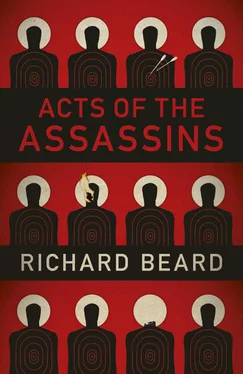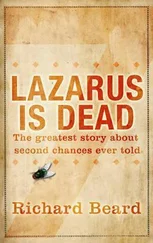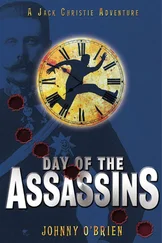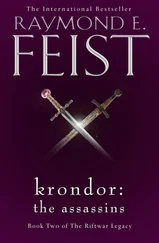With the aid of fellow travellers, many of them believers in Jesus, Gallio arrives in the eternal city. He has formulated a plan of action that starts with Paul, who is under house arrest in a district called the Fourth Regidor. However, Gallio’s most direct route from the port is blocked by police on the Fabricius bridge. The officers are stopping and searching, security level Red: Severe. Gallio turns back, looks for a safer route, tags on to pedestrian tours and at market stalls pretends to take an interest in SPQR bracelets and letters whittled from Lazio wood. Pick out R O M A and take the letters home. Pick out the name of your favourite saint while keeping an eye on the patrols on the Via Palermo and the Viminal Hill.
Every main thoroughfare is blocked, until Gallio ends up in the bus shelter. He wants a meeting with Paul, but forces beyond his control don’t want him getting through. Interesting, but as a deserter he can’t risk the backstreets and a patrol picking him up. Lost for ideas, he makes the sign of the fish with his finger on the dusty Perspex of the bus shelter. A middle-aged woman with plastic shopping bags asks him if she can help, and Gallio is no longer surprised by the reach of their network.
‘I was hoping to see Paul,’ he says, ‘in the Fourth Regidor. Jesus would rather I didn’t.’
‘Nonsense,’ she says, ‘your information is out of date, that’s all. Paul moves about freely and was last seen outside the city at the Abbey of the Three Fountains. You can take a bus.’
It could be a trap. On the other hand not even Jesus could brief all his followers, every single one, on the off chance they’d meet Cassius Gallio at a Roman bus stop. Gallio is using them; they’re not using him.
He crosses the road and waits for a bus heading in the opposite direction, away from the heightened security in the city centre. For a long time there’s no sign of a bus, just carts full of sand and building materials. Rome is a permanent work-in-progress, chisels on marble, shouting, the bang of hammers getting things done. Gallio sees freestanding columns where life thrived before the fire, he sees roofless temples and doubts if the city will ever fully restore itself.
He doesn’t believe that Peter and John are responsible for the ruins, not all of them, yet Peter is the entertainment at this Saturday’s Circus. Saturday 2–5, says the poster in this and every bus stop, The Greatest Show On Earth . It looks like exactly the kind of extreme result a disciple would welcome.
At last, after about a million years, a bus arrives. The driver knows the Abbey, and tells Gallio to watch out for the Three Fountains bus stop, near the Siemens Italy offices, can’t miss it. The driver is right, and the Siemens headquarters is at a busy out-of-town junction beside a flyover. Gallio walks down the hill, cuts across a park, and picks up signs to the Abbey.
From the entrance, when he arrives, Gallio can see a long garden bisected by a tree-lined path leading to the Abbey itself, which from a distance looks like many of the old church buildings in Rome. A baby cries, his mother one of a handful of believers compelled to see the site where an apostle died. Mum and pushchair are leaving, and at this time of day the café at the lodge is closed.
Just before the main Abbey building, next to a bubbling water source set into the green bricks of a wall, a man and two women are standing in close conversation. Fieldcraft, Gallio thinks, they’re using the running water to counteract listening devices, but fortunately he knows how to join them. He stands nearby and with the toe of his shoe he makes the shape of the fish in the gravel at his feet. They recognise the sign, and welcome him in as a fellow believer.
Yes, they say, Paul is known in this place but he hasn’t been here recently. They’re more interested in Peter — he’s in the underground dungeon at the Mamertine Prison, and they were just saying that apparently he baptises fellow prisoners with the damp from the fetid walls.
‘Amazing. As if the water presented itself there for exactly that purpose.’
‘Only three left,’ Gallio reminds them, before they get carried away. ‘It’s too late for Peter but thank god for John, and for Matthew. At least in Cairo he’s safe. Have you heard from John? He ought to get out while he can.’
They correct him: sorry, but Matthew is dead. Assassins tracked him to a two-room house in the Entoto suburb of Addis Ababa. They broke down the door. In his study they found a simple chair and table and a roll of blank papyrus imported from Egypt.
‘He died horribly.’
The assassins chopped off Matthew’s hands, and in the yard of the house they wrapped him in his papyrus then soaked the paper in dolphin oil. They poured brimstone over his head, and asphalt, and pitch, then piled up tow and scrubwood beneath him. They invited local dignitaries to come along and watch. Bring your friends, bring golden images of your gods. See if Matthew the disciple of Jesus will burn.
When everyone was assembled and sitting comfortably, the gods and the men, someone struck a match.
The Christians at the Abbey outside Rome take grim pleasure in the details of Matthew’s death, which evidently hasn’t worked as a deterrent. In one sense Matthew is as thoroughly dead as the nine disciples before him, but he is also a light in the darkness. Faith is rewarded by persecution and death, but a brighter day is coming.
‘What is the brighter day?’ Gallio asks. ‘When can it be expected to arrive?’
He realises his mistake: he ought to know, or as an honest follower believe without facts and details. Jesus is coming back, an article of faith for true believers.
‘Who are you, exactly?’ they ask. ‘What do you want? Can we help you?’
This is their response to every quandary, and to every challenge Gallio has tried to devise: they think they ought to be able to help him.
‘I need to see Paul,’ Gallio says. ‘Wherever he is now I have important news for him. I was with Andrew when he died.’
Early the next day Cassius Gallio is climbing over rubble in Rome’s shattered back alleys, avoiding the mainstreet patrols that encircle the Fourth Regidor. The Christians at the Abbey told him about a safe route through to Paul’s house, and along this or that unexpected vista Gallio sees new buildings squeezed next to old, satellite dishes and ancient domes, a lone seagull gliding.
He falls in behind an early-morning organic rubbish collection. The bin-men of Rome tip baskets of food waste into a filthy wagon as it trundles through side streets, and Gallio meets no patrols at this time of day in these places. He rubs his beard, wonders how good is too good to be true. He’d spent the night in the Abbey gardens, after the Christians had given him food and a key to the washroom at the café. In the mirror above the sink he’d checked his face for errant nerves, then disapproved of the way he looked. He went back out to find more believers. They loaned him nail scissors and he trimmed his beard.
Paul is under nominal house arrest on the second floor of a two-storey building, in a flat above a kitchen supplies outlet. This is it, the main drag of the Fourth Regidor, and the shops on either side are blackened and boarded up, the cauterised walls patched with fly-posters for the Circus, Sold Out stamped diagonally across the venue and date. For some reason, the fire has left Paul’s building untouched.
At the top of the outdoor stairs a plainclothes officer, a dark-skinned Roman in skinny jeans, sits in a rattan chair with his feet against the railings. He’s playing Tomb Raider on an iPad. Gallio doesn’t know if the police are guarding Paul or protecting him, but either way he can’t back out now. The man lifts his eyes, takes in Gallio’s appearance. He nods him through.
Читать дальше












